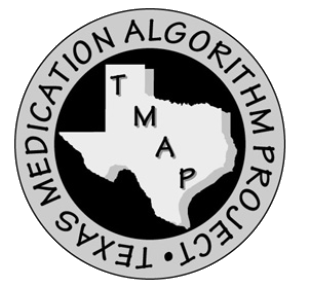
The Texas Medication Algorithm Project has been the subject of many of my recent posts [links below for background]. It essentially prescribed that psychiatrists in the public sector in Texas treat schizophrenia using the then new Atypical Antipsychotics rather than the older drugs – a move that cost the State of Texas megabucks. The project was ultimately incorporated by about 30% of our other States. When Allen Jones, a Pennsylvania OIG investigator, discovered that Johnson & Johnson was funding the spread of this program by Texas officials, Jones was waved off the case and later fired. His whistle-blower suit was filed in Texas in 2004 and joined by the State of Texas in 2006.
Three psychiatrists, Dr. Allen Frances, Chairman of the Department of Psychiatry, Duke University, Dr. John P. Docherty, Professor and Vice Chairman of Psychiatry, Cornell University and David A Kahn, Associate Clinical Professor of Psychiatry, Columbia University, took the lead in designing and developing the Tri-University Guidelines. The project would employ three questionnaires to establish the guidelines: one went to academic experts, one to clinicians, and one to policy experts. Including the third group was in all likelihood J&J’s idea as witness to the fact that Frances wrote J&J: "This is new to us and requires additional discussion. The panel members would include mental health commissioners, community mental health directors, NAMI representatives, experts in pharmacoeconomics, and so forth." These were precisely the constituencies that J&J was eager to influence. J&J was the exclusive supporter of the project, dividing an "unrestricted" grant of $450,000 among the three schools. It further agreed to a $65,000 bonus incentive payment if the team was timely with its product. The team met the requirement, requested the additional payment, and received it.
EKS wrote to Janssen on July 3, 1996 that it was pleased to respond to its request to "develop an information solution that will facilitate implementation of expert guidelines." It assured the company: "We are also committed to helping Janssen succeed in its effort to increase its market share and visibility in the payor, provider, and consumer communities." Now that the "first phase" was completed, with guidelines created, "EKS is now ready to move forward in a strategic partnership with Janssen." The strategy will allow Janssen to influence state governments and providers… Build brand loyalty and commitment with large groups of key providers around the country." EKS also promised "rapid implementation," with particular attention to having an impact on Texas decision making. "It is our intent to work with the State of Texas immediately in implementing this product in a select number of CMHC’s with the assistance of A. John Rush, MD." Again, EKS emphasized: "It is essential for Janssen to distinguish Risperidone from other competitors in a timely and creditable way." In its Summary of the document, EKS wrote: "Your investment in the development of state of the art practice guidelines for schizophrenia is already beginning to pay off in terms of positive exposure in the Texas implementation project."
Many of us have spent a lot of time and energy trying to hone in on the depth of the Pharmaceutical Industry’s penetration into academic psychiatry. One would think it would be confirming to read a Report like this – one that actually seems to document our worst suspicions. Guidelines for treatment written by prominent academics being willingly co-opted by the marketing needs of a drug company; State officials involved in the State formulary medication choices profiting from their drug company affiliations; State and University officials actually marketing their tainted program to other States on a pharmaceutical company’s nickle; articles being professionally written and "guest authored" by academics chosen after they were written – flooding our journals. But it was still deeply disturbing for me to read this Report, even though I’d suspected many of the revelations for a while.
This looks to have been a concerted effort by Johnson & Johnson to assure that their Atypical Antipsychotic would be the first-line drug in the treatment of schizophrenia in the public sector where most of the afflicted wind up being treated. The scientific evidence did not support that designation, so it appears they made it happen by methods I thought I would never see operating in the world of medicine. Judge Couch used the word "detestable" in his South Carolina decision against J&J. It was a good choice of words. I hope that all of the primary information that informs this Report sees the light of day. This should never have happened in the first place, but now the imperative is to be sure it never happens again.
TMAP was a model of pharmaceutical corporate corruption which continues to be honed, refined, and used repeatedly today (aka DSM-5, Bio-markers, preemptive asymptomatic intervention Blah Blah Blah).
Unfortunately we can’t put this Nasty Genie back in the bottle…
Thank you for this great series of informative post…
Like you, even after following your research and revelations on this, the boldness and blatantness of this is appalling.
Thanks for keeping on this. I wouldn’t have known about it otherwise/
I last saw John Rush at UT Southwestern in December 2009. He was standing alone outside the auditorium, where he was scheduled to talk about his experiences in Singapore. As I walked by, I thought, if I can make eye contact with him, I will stop and tell him about the negative impact he had on my life. As soon as I caught his eye, though, he dropped his head and looked at the floor. I got the impression he was sorry for what he had done. Now I know better.
What baffles me is that Rush and his colleagues are still employed in academic settings.
Great coverage. Keep on keeping on brother.
EKS expert knowledge systems guidelines online at
http://www.psychguides.com/